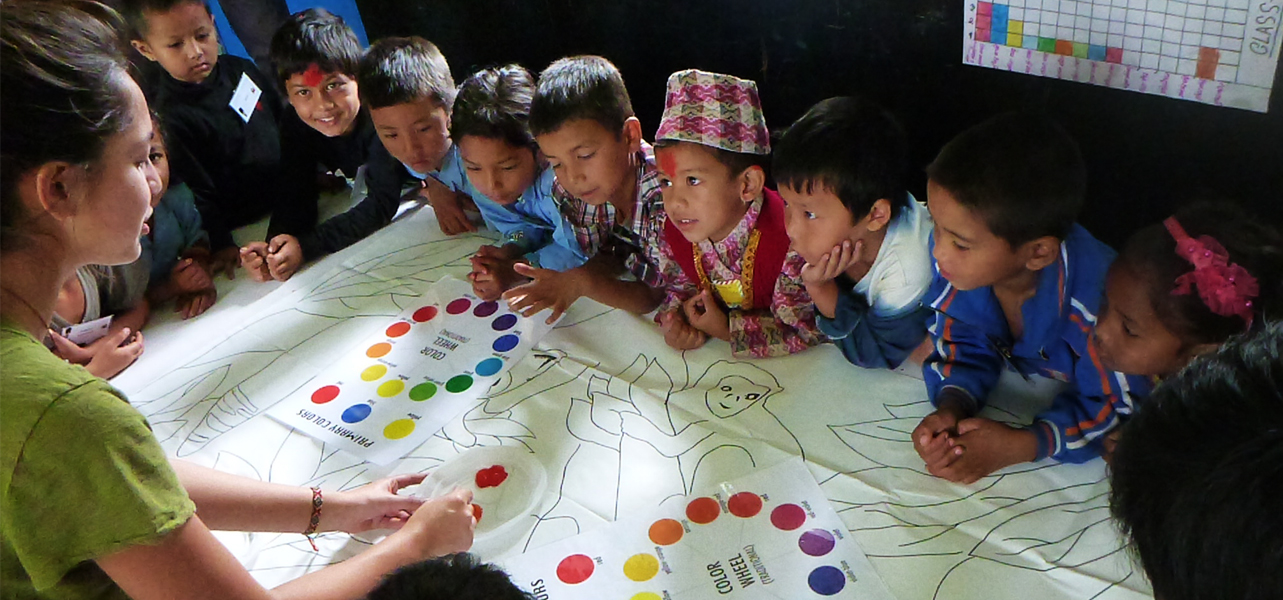Description/achievement of initiativeThe Global Partnership for Effective Development Co-operation is a multi-stakeholder platform to advance the effectiveness of development efforts by all actors, to deliver results that are long-lasting and contribute to the achievement of the Sustainable Development Goals (SDGs). The work of the Global Partnership is based on four principles of effective development co-operation including country ownership, a focus on results, inclusive partnerships, and transparency and mutual accountability. These principles were agreed in 2011 by more than 160 countries and 50+ organisations in the Busan Partnership Agreement, the outcome of the Fourth High-Level Forum on Aid Effectiveness in Busan, South Korea.Implementation methodologiesThe Global Partnership’s biennial programme of work is endorsed by the multi-stakeholder Steering Committee and defines targets and responsibilities for the implementation its work. To achieve the ambition of the Global Partnership as outlined in the Nairobi Outcome Document, in 2017 and 2018, the Global Partnership will significantly enhance efforts by all stakeholders to achieve more effective development co-operation at the country level; increase knowledge-sharing for improved development impact; and learn from emerging development partners from the Global South, the private sector, and others. To track such country, regional and global progress on effective development co-operation, the Global Partnership engages in a biennial monitoring process led by developing countries themselves, and in consultation with development partners including providers of development co-operation, representatives from civil society, parliamentarians and the private sector, among others. Based on these conversations and analysis around the current development co-operation landscape, the Global Partnership’s current programme of work is focused on six inter-related and mutually reinforcing strategic outputs for 2017-2018: 1. Enhancing support to effective development co-operation at country level 2. Unlocking the potential of effectiveness and updated monitoring for 2030 3. Sharing knowledge to scale-up innovative development solutions 4. Scaling up private sector engagement leveraged through development co-operation 5. Learning from different modalities of development co-operation 6. Strengthened high-level political engagement, advocacy, public communication and strategic use of data and evidenceArrangements for Capacity-Building and Technology TransferThe Global Partnership is recognised as a complementary forum to support implementation of Addis Ababa Action Agenda for Financing for Development in pursing efforts to improve the quality, impact and effectiveness of development co-operation. To this end, throughout is implementation, the Global Partnership engages in key capacity-building and knowledge transfer activities with partners by: (i) generating data and evidence on progress in meeting commitments for more effective development co-operation through its inclusive monitoring framework; (ii) administering a country-focused approach that helps developing countries make the best use of development co-operation to realise their national development goals; and (iii) leading multi-stakeholder dialogue amongst development stakeholders at local, country, regional and global levels. The evidence generated from the GPEDC also provides inputs to the review of SDG targets on respecting countries’ policy space and leadership (SDG 17.15); multi-stakeholder partnerships for development (SDG 17.16); and gender equality and women’s empowerment (SDG 5c). Data also informs the Inter-Agency Task Force report for FfD.Coordination mechanisms/governance structureThe Global Partnership is led by three ministerial co-chairs and governed by a multi-stakeholder Steering Committee. Senior government officials from Bangladesh, Germany and Uganda lead the Global Partnership and advocate for effective development co-operation across the globe. The Steering Committee is the Global Partnership’s multi-stakeholder governing body. It meets biannually to guide the work of the Global Partnership and ensure that it is carried out transparently, fully consulting each stakeholder group. Members include representatives from recipients and providers of development co-operation, the business sector, parliaments, civil society, multilateral development banks, UNDP/UNDG, OECD/DAC, Arab providers of development co-operation, trade unions, foundations, and sub-national governments. Since 2012, UNDP, together with its partners at OECD, has supported the effective functioning of the Global Partnership as its Joint Support Team. This role is based on UNDP’s track-record in supporting countries in implementing the Paris Declaration, the Accra Agenda for Action, and the Busan Partnership principles as well as strengthening national capacity for development management and co-ordination. Since 2012, UNDP and OECD have supported the effective functioning of the Global Partnership as its Joint Support Team.Partner(s)The Busan Partnership for Effective Development Co-operation, giving birth to the Global Partnership, was endorsed by 161 countries and heads of multilateral and bilateral institutions, and representatives of public, civil society, private, parliamentary, local and regional stakeholders. From 2017-2018, the Global Partnership is led by 3 ministerial-level co-chairs from the Finance Ministry of Bangladesh, Federal Ministry for Economic Co-operation and Development of Germany, and Planning and Economic Development Ministry of Uganda, guided by a 20-member Steering Committee and supported by the OECD and UNDP Joint Support Team. The Global Partnership also has a network of 29 Global Partnership Initiatives (GPIs), led by 58 organisations. These are voluntary initiatives, also known as the think tanks of the Global Partnership as they work in a range of development fields that directly contribute to implementing the Global Partnership’s internationally-agreed development effectiveness principles.
Global Partnership for Effective Development Co-operation (GPEDC)

